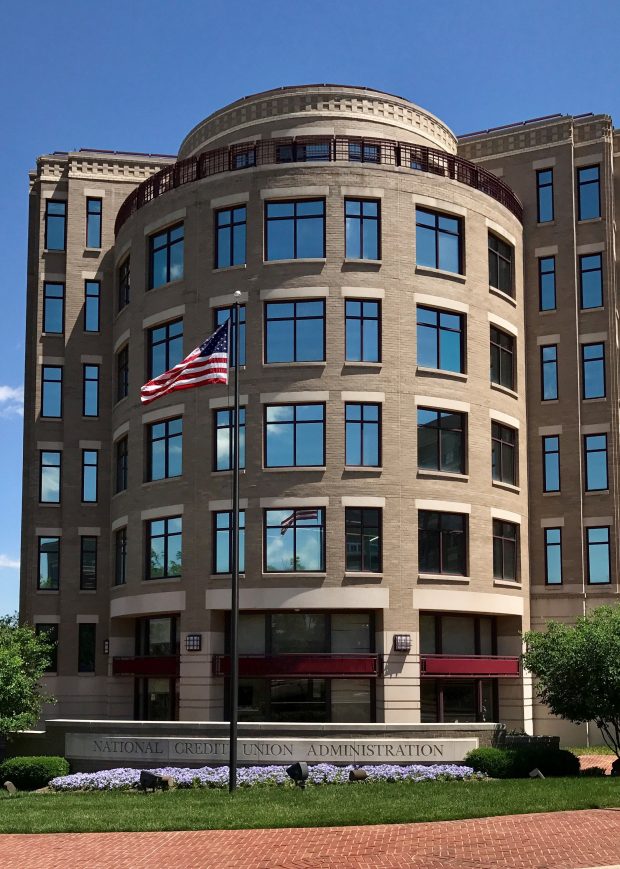 NCUA headquarters. (Source: NCUA)
NCUA headquarters. (Source: NCUA)
On the same day that NCUA Chairman Rodney Hood touted the Community Development Revolving Loan Fund before the Senate Banking Committee, the Senate Appropriations Committee proposed to eliminate the program.
"The COVID-19 pandemic poses unique challenges, both economically and financially, to rural and underserved communities, which are served primarily by small, low-income and minority credit unions," Hood said in prepared testimony for the Banking Committee hearing. "In April, the NCUA committed the majority of its 2020 CDRLF allocation to COVID-19 assistance."
Recommended For You
However, the Senate Appropriations Committee released its versions of the FY21 spending measures and the Financial Services spending bill contains no new funds for the program, which received $1.5 million during the current fiscal year.
Hood said that this year, the revolving loan fund provided 153 grants totaling nearly $1.5 million, adding that 32 went to first-time grant recipients. Grants ranged from $900 to $10,000, he said. The NCUA also approved nine no-interest loans of $250,000 each.
The Senate is not expected to consider its spending measures in committee or on the Senate floor. Instead, the bill represents the Senate's starting point in negotiations with the House over the FY21 spending bills.
The House spending measure calls for $2 million for the revolving loan fund.
Much of the federal government is funded through a Continuing Resolution through Dec. 11. Congress and the Trump Administration will either have to reach spending deals to last through the end of FY21 or pass another short-term spending measure to keep the government funded.
CUNA Chief Advocacy Officer Ryan Donovan said he believes the revolving loan fund will receive money this year.
"While the allocation isn't surprising, at the end of the day it's concerning for the credit unions and communities that rely on this fund," he said. "The House has appropriated funds for the CDRLF in their markup, and we expect that through the reconciliation process, the fund will receive appropriations."
The Senate spending bill also calls for $262 million for the Community Development Financial Institutions program, the same amount the program received during the current year. The House spending bill calls for $273.5 million for the CDFI program.
When it released its spending measure, Senate appropriators expressed concern about oversight of CDFI funds.
"The Committee strongly believes it is important to ensure that CDFIs are delivering investments to the borrowers and communities that need it most," Senate appropriators said. They went on to direct the Treasury Department to prepare a report on the impact that FY18 funds have had on their communities.
The Trump Administration in its annual budget requests has proposed eliminating the program, although President Trump eventually touted it while campaigning.
© Touchpoint Markets, All Rights Reserved. Request academic re-use from www.copyright.com. All other uses, submit a request to [email protected]. For more inforrmation visit Asset & Logo Licensing.






